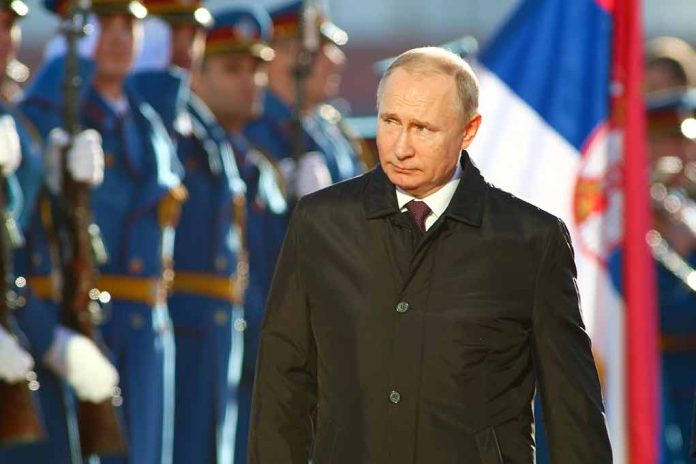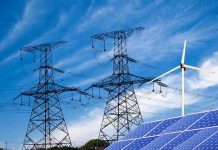
Putin threatens nuclear retaliation as Western nations consider expanding military support for Ukraine.
At a Glance
- Putin warns of potential nuclear response to Western involvement in Ukraine conflict
- Russian officials issue threats regarding Ukraine’s use of Western-supplied long-range weapons
- U.S. and U.K. reconsidering restrictions on long-range weapons for Ukraine
- Zelensky urges Western allies to lift weapons restrictions during U.S. visit
- Russia accused of plotting attacks on Ukrainian nuclear plants
Putin Escalates Nuclear Rhetoric
Russian President Vladimir Putin has intensified his warnings to the West, asserting Russia’s right to deploy nuclear weapons if faced with aggression from a nation allied with a nuclear-armed state. This veiled threat comes as Western countries, particularly the United States and United Kingdom, contemplate expanding their military support for Ukraine.
Putin’s statements coincide with Ukrainian President Volodymyr Zelensky’s visit to the United States, where he appealed for enhanced weaponry before the United Nations General Assembly and met with President Biden. The timing of these events underscores the mounting tensions between Russia and the Western alliance supporting Ukraine.
Western Allies Consider Expanding Support
As the conflict in Ukraine continues, Western nations are reassessing their stance on providing long-range weapons to Ukraine. The United States and United Kingdom are reportedly close to allowing Ukraine to use Western-supplied long-range weapons, excluding those provided by the U.S. Potential weapons under consideration include British Storm Shadow missiles and France’s SCALP-EG weapons.
“From day one, as you heard me say, we have adjusted and adapted as needs have changed, as the battlefield has changed, and I have no doubt that we’ll continue to do that as this evolves,”, stated U.S. Secretary of State Antony Blinken
This potential shift in policy has prompted stern warnings from Russian officials. Putin himself stated that allowing Ukraine to use long-range missiles to strike Russian territory would be seen as NATO’s direct participation in the war, potentially changing “the very nature of the conflict.”
Russia’s Nuclear Posturing
In response to the potential escalation of Western support for Ukraine, Russian officials have ramped up their nuclear rhetoric. Putin emphasized Russia’s nuclear capabilities and readiness, mentioning new Russian weapons such as the Sarmat intercontinental ballistic missile, Burevestnik cruise missile, and Poseidon nuclear-armed drone.
“We also have the weapons that can strike targets on their territory, and what they are now suggesting and scaring the world with, all that raises the real threat of a nuclear conflict that will mean the destruction of our civilization.”, Putin stated.
Furthermore, Russia is reportedly considering revising its nuclear doctrine in response to Western actions. This development, coupled with Putin’s warnings, has heightened concerns about the potential for nuclear escalation in the ongoing conflict.
Zelensky’s Accusations and Appeals
During his visit to the United States, Ukrainian President Volodymyr Zelensky made several significant statements and accusations. He alleged that Russia is plotting attacks on Ukrainian nuclear plants, warning that such actions could lead to a nuclear disaster. Zelensky also presented a “victory plan” to President Joe Biden at the White House, emphasizing Ukraine’s need for continued and expanded Western support.
As the conflict in Ukraine continues to evolve, the international community remains on edge, closely monitoring the escalating rhetoric and potential shifts in military support. The delicate balance between providing aid to Ukraine and avoiding direct confrontation with Russia continues to challenge Western leaders, as they navigate the complex geopolitical landscape shaped by Putin’s nuclear threats.













